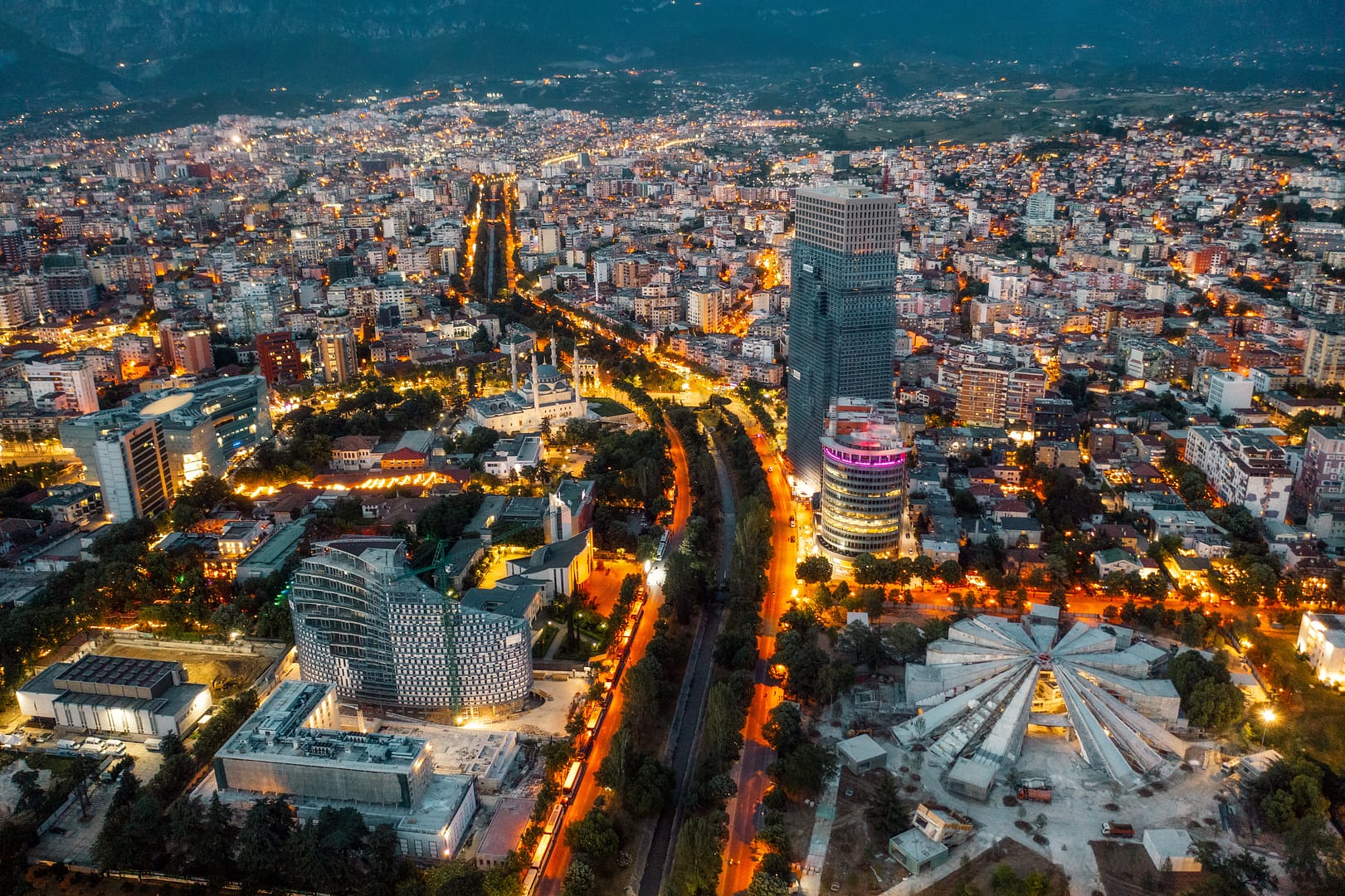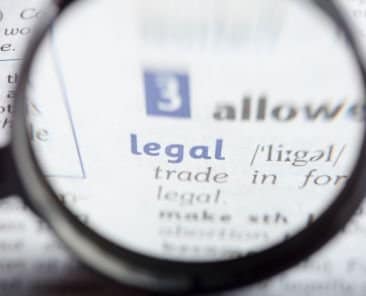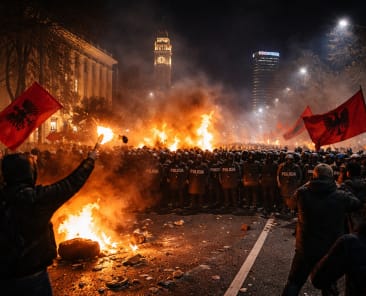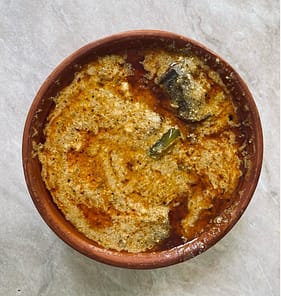Moving to a new country is an exciting adventure, and Tirana, the capital city of Albania, is becoming a popular choice for expats from around the world.
With its “chaotic” but fun and vivid vibe, affordable cost of living compared to some other cities in Europe, and growing expat community, it’s easy to see why so many people are drawn to it.
But before you book that one-way ticket, you probably have plenty of questions on your mind you need answers to, especially if you know nothing about the city. So, to help you start this journey stress-free, I’ve covered some of the main topics an expat should be familiar with before moving to Tirana.
Let’s get started!
Why Move to Tirana?
Tirana has won the hearts of many, and as a native Albanian, I understand why.
The city’s transformation over the past few decades has been significant. It has evolved from a post-communist place to a lively, colourful, and energetic urban hub that welcomes expats and digital nomads. But let’s take a deeper look at what makes Tirana so appealing to them:
Affordable Cost of Living: Rent, groceries, and daily expenses are much lower than in most Western European countries. Expats find that their money goes further here, so they get to enjoy a comfortable lifestyle for less.
Mild Climate: Tirana enjoys around 300 sunny days a year. The Mediterranean climate means mild winters and warm, sunny summers. It’s the dream weather for those who love outdoor living and softer weather. So, if you’re not a fan of freezing winters, Tirana’s weather will likely be a pleasant change.
Welcoming Community: Albanians are known for their hospitality. The locals are friendly, welcoming, and often eager to help foreigners adjust to life in the city. It’s common to be invited for a coffee or an event, even if you just met them!
Social Life and Café Culture: Tirana’s cafe culture is a big part of daily life. People of all ages gather at cafes to socialize, work, and relax. The nightlife is also active, with numerous bars, clubs, and music venues for a night out.
Cultural and Historical Mix: The city’s history is reflected in its diverse and interesting architecture, from Ottoman-era mosques to modern facades like the Pyramid of Tirana. It’s a mix of styles that doesn’t go unnoticed, and it creates a cityscape that’s both historic and contemporary.
Expat Community and Support: More expats are moving to Tirana every year, so it’s easier to find a community of like-minded individuals. Social meetups and online Facebook groups help you connect with others.
Unique Local Experiences: Despite being a small country, there’s a lot you can explore in Albania! Tirana can serve as your home base as you travel across the country and maybe work from new places if you’re a digital nomad. Another thing you can do is travel to Europe conveniently. Tirana’s airport offers connections to the rest of Europe, with direct flights to many major cities.
Opportunities for Remote Work: Tirana has become a destination for remote workers. The cost of living is affordable, Wi-Fi is reliable, and there are a growing number of co-working spaces for those who need a productive environment.
Visas and Residency
If you’re from an EU or EEA country, you can enter Albania visa-free and stay for up to 90 days within a 180-day period. If you plan to stay longer, here’s what you need to do:
Residency Permit: Apply for a residence permit through e-Albania (Albanian government platform).
Work Permits: If you’re planning to work, you’ll need a work permit. Some employers will help you obtain this, but you can also apply independently.
Non-EU/EEA Nationals: Check with the Albanian embassy in your country for visa and residency requirements.
Finding Accommodation
Finding a place to live in Tirana can be quick if you know where to look. Here’s a simple breakdown of what to expect:
Popular Neighborhoods:
- Blloku – The trendy heart of Tirana with cafes, restaurants, and nightlife.
- 21 Dhjetori – More residential and affordable, but still close to the city centre.
- Komuna e Parisit – A growing neighborhood with modern apartments.
- Lapraka – A bit far from the centre, but more budget-friendly for expats.
Check out the top 15 neighbourhoods in Tirana and what each of them has to offer.
How to Find Rentals:
- Facebook Groups – Search for expat groups where people often share apartment listings.
- Online Platforms – Websites like MerrJep or local property sites.
- Magic Towns Albania – We help you find your dream home!
Rental Costs: Monthly rent for a one-bedroom apartment in the city centre is around 300-500 EUR, while outside the centre, it’s cheaper.
Note: When renting an apartment in Tirana, it’s common for landlords to request payment in advance. Typically, tenants are required to pay the first month’s rent plus a security deposit, which is usually equivalent to one or two months’ rent.
Healthcare System
Healthcare in Tirana is accessible, but here’s what you should know:
Public Healthcare: Available but often has longer wait times and fewer English-speaking staff.
Private Clinics: Many expats prefer private clinics or hospitals due to better service and English-speaking doctors.
Health Insurance: It’s recommended to get private health insurance to cover your medical needs.
Cost of Living
Tirana’s cost of living is affordable compared to other European capitals. Here’s a breakdown:
Rent: 300-500 EUR for a one-bedroom apartment.
Utilities (Electricity, Water, Gas): 50-100 EUR per month.
Groceries: A weekly shop costs around 20-40 EUR, depending on your lifestyle.
Public Transport: A bus ticket costs about 40 ALL (around 0.35 EUR).
Dining Out: A meal at a local restaurant can cost 5-10 EUR (in cheap restaurants) and 50-70, or even more, in more expensive restaurants.
Getting Around
Tirana’s transportation system is simple and affordable. Here’s how to get around:
Buses: The most common option. Bus tickets cost 40 ALL (0.35 EUR).
Taxis: Widely available and not very expensive. Make sure the meter is on to avoid overpaying.
Walking: Tirana’s city centre is walkable, so many people prefer to walk.
Cycling: Bikes and e-scooters are becoming more popular, and some areas have bike lanes.
Language and Culture
The official language is Albanian, but English is spoken in tourist areas, especially by younger people.
Learning the Language: Picking up basic Albanian phrases will help you integrate.
Local Customs: Greet people with “Mirëdita” (Good day) and respect local customs.
Social Life: Albanians are social, and many people love to hang out in cafes. Coffee culture is a big part of life here.
Banking and Money
Setting up your finances in Tirana is essential. Here’s what you need to know:
Currency: The Albanian Lek (ALL) is the official currency. 1 EUR = about 110-120 ALL.
Bank Account: Open an account if you’re staying long-term. We’ve covered a helpful guide on how to open a bank account if you’re an expat in Albania.
Payments: Cash is widely used, but cards are accepted in most restaurants and stores.
Schools and Education
If you’re moving with children, you’ll want to know about schools:
International Schools: Tirana has several international schools offering education in English, like Tirana International School (TIS).
| School Name | Age Specification | Languages | Accreditation/Notes |
|---|---|---|---|
| Tirana International School (TIS) | Kindergarten, Primary, High School | English | Focus on critical thinking, leadership, digital literacy |
| World Academy of Tirana (WAT) | Kindergarten, Primary, High School | English | First IB school in Albania, EAL support |
| Deutsch-Albanische Schule (DAS) | Kindergarten, Primary, High School | Albanian, German | Follows German education system |
| International Montessori School | Kindergarten | English | Montessori philosophy, international team |
| GDQ International Christian School | Kindergarten, Primary, High School | English | MSA-CESS, ACSI accredited, Christian values |
| Albanian International School (AIS) | Kindergarten, Primary School | English | Follows Common Core Standards, WASC accredited |
| Albanian College Tirana (ACT) | Kindergarten, Primary, High School | English | IB curriculum |
| Ecole Francaise De Tirana (EFIT) | Kindergarten, Primary, High School | French, Albanian, English | French educational standards |
| Scuola Italiana a Tirana | Kindergarten, Primary, High School | Italian, Albanian, English | Trilingual, multicultural environment |
| Arsakeio Greek School in Tirana | Kindergarten, Primary, High School | Albanian, Greek | European education, fosters Greek-Albanian understanding |
| Albanian Qatar College in Tirana | Primary, High School | English | Day and boarding options |
Local Schools: If you prefer a more affordable option, local Albanian schools are available, but classes are taught in Albanian.
Job Market and Work Opportunities
If you’re considering working in Tirana, your best bet is to secure a remote job with an employer from a higher-paying country. Here’s why: First, salaries in Albania are generally lower compared to those in more developed nations, like the USA or Western European countries. Secondly, landing a local job in Albania can be quite challenging due to limited opportunities and high competition.
Job Sectors: Popular fields for expats include teaching English, tourism, tech, and remote work.
Remote Work: Many expats move to Tirana as digital nomads since the cost of living is affordable.
Work Permits: You’ll need a work permit if you’re employed by a local company.
Making Friends and Building a Social Life
It’s important to feel connected when living in a new city. Here’s how to meet people in Tirana:
Expat Groups: Join Facebook groups like “Expats in Tirana” to meet people.
Language Exchanges: Join language meetups to practice Albanian and meet locals.
Cafes and Bars: Café culture is strong in Tirana. You’ll find people socializing at cafes throughout the day.
Safety Tips
Tirana is generally a safe city, but as with any city, it’s good to stay aware:
Pickpocketing: Watch out for pickpockets, especially in crowded areas. It’s also wise to stay alert in coffee shops, especially those with self-service, as it’s common for people asking for money to approach customers. Keep your belongings close and avoid leaving phones, wallets, or bags unattended on tables.
- Ambulance: 127.
- Fire brigade: 128.
- Rescue police: 129.
- Traffic police: 126.
- Rescue police: 129.
- Traffic police: 126.
Walking at Night: The city is generally safe to walk around, but it’s wise to stay in popular areas.
Final Thoughts
Moving to a new country is always challenging, and Tirana makes no exception. However, if you’re planning to move here, it’s helpful to know that the locals are very friendly, there’s a community of expats living here, that’s why I’m sure you’ll feel at home right away!
If you have any questions, feel free to contact us; we’re always happy to help!





